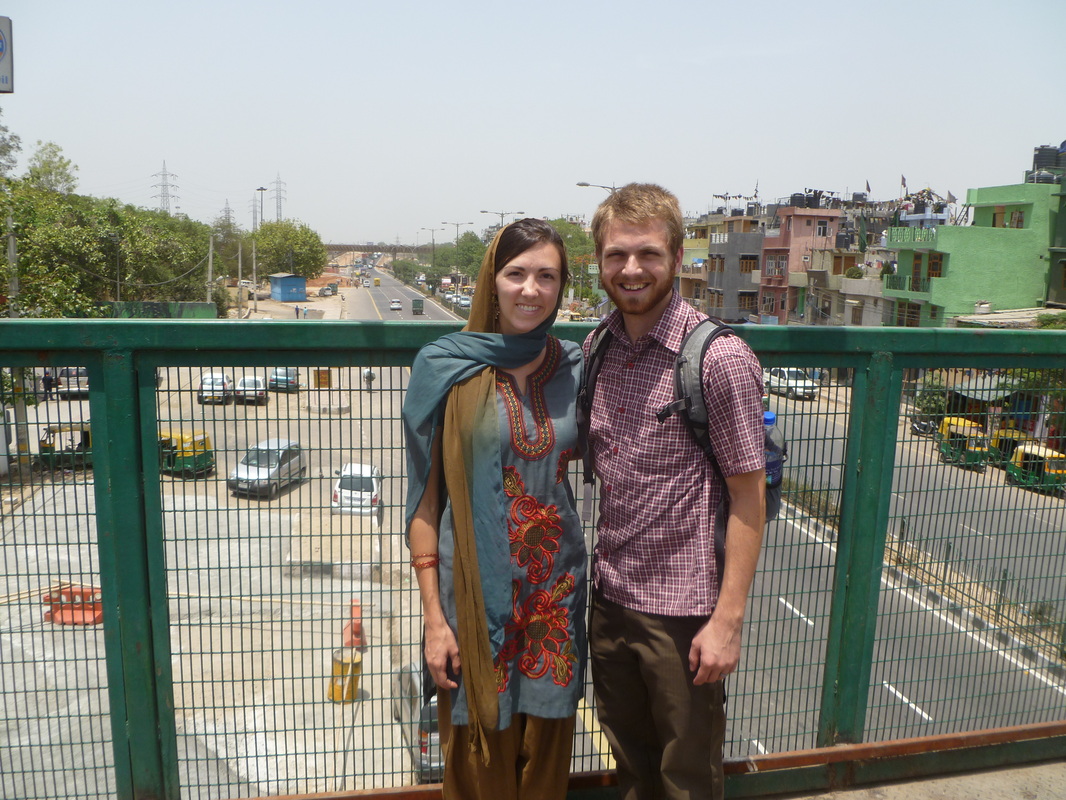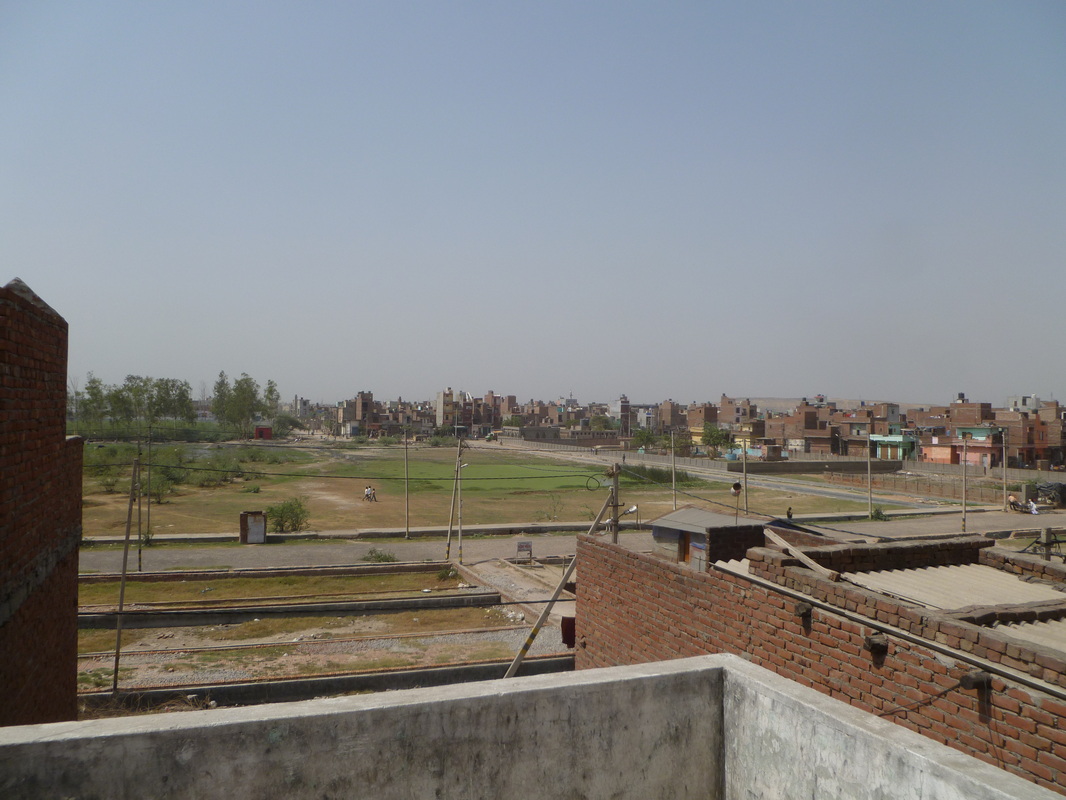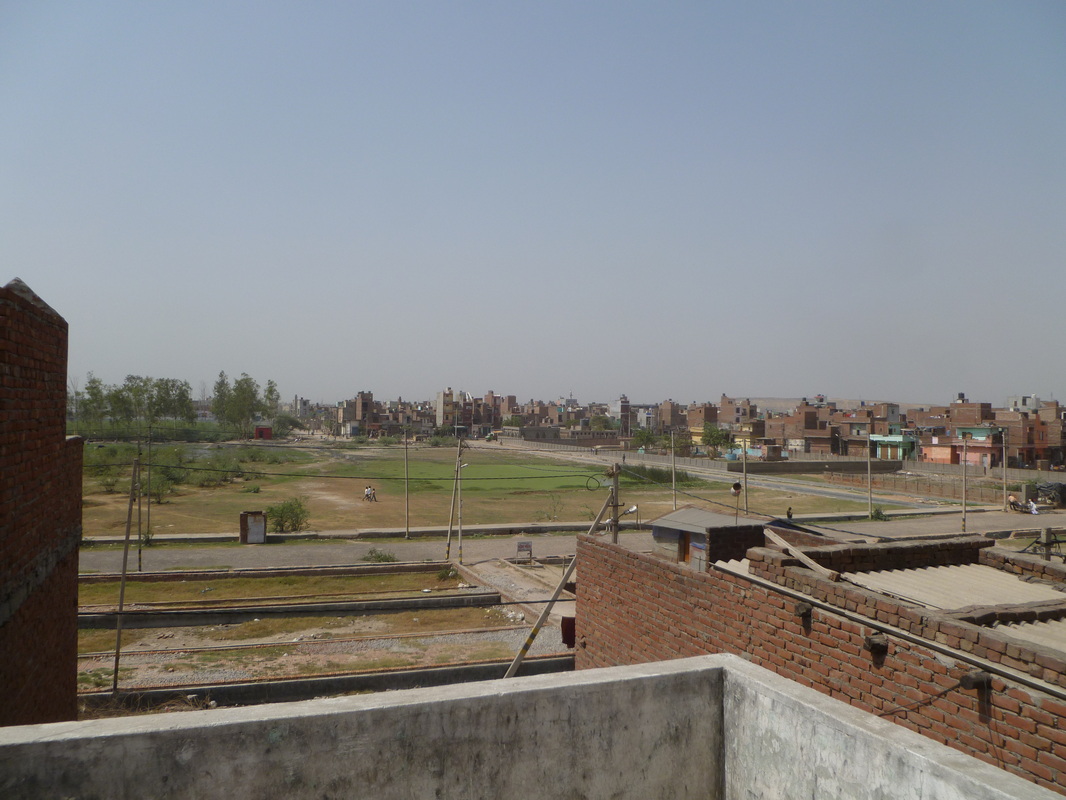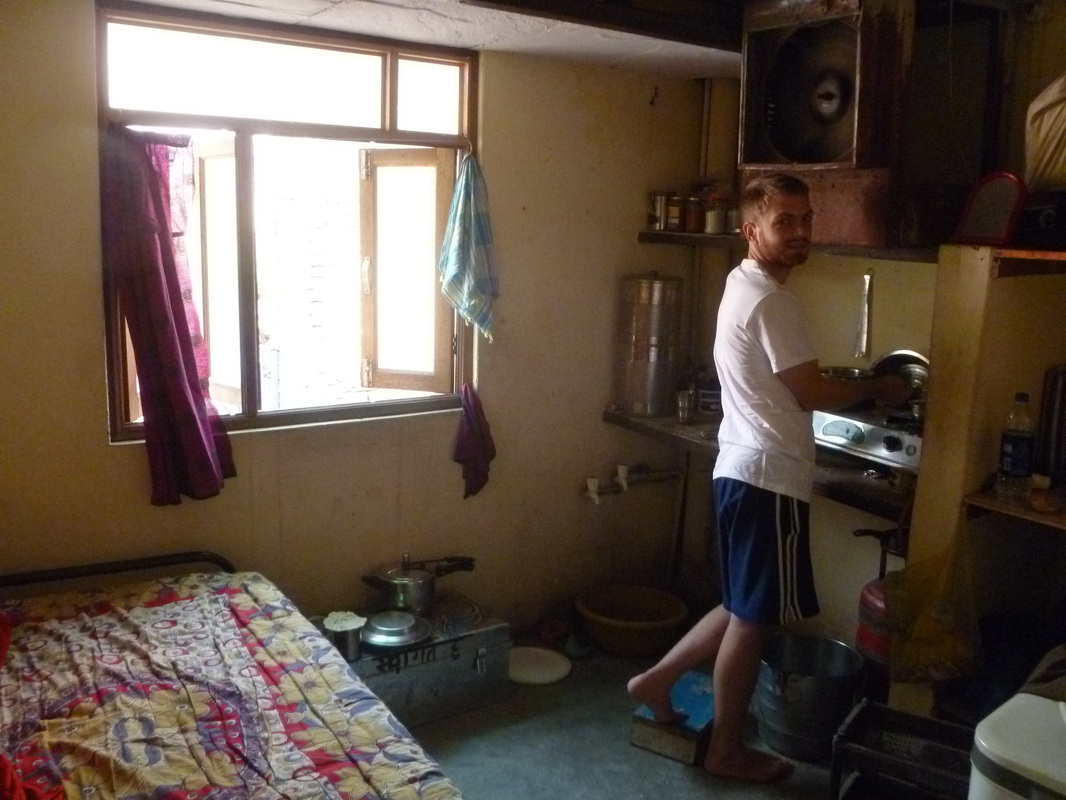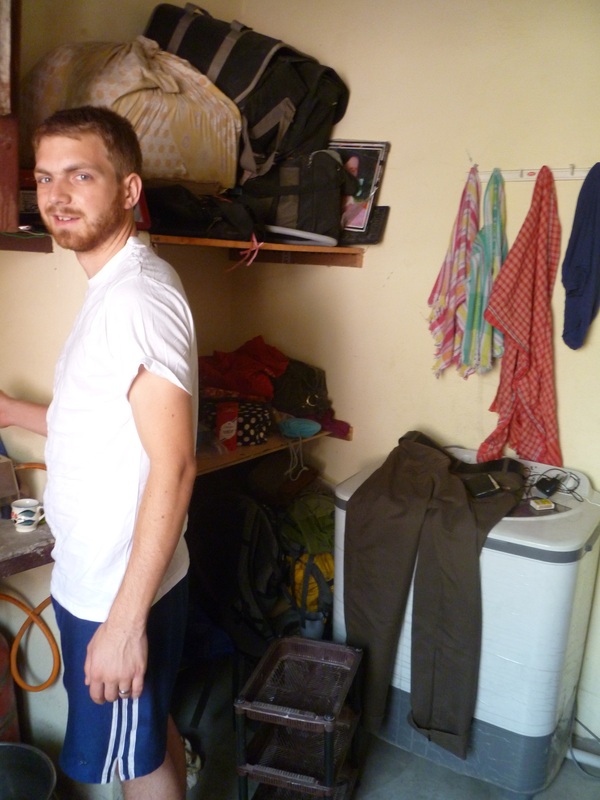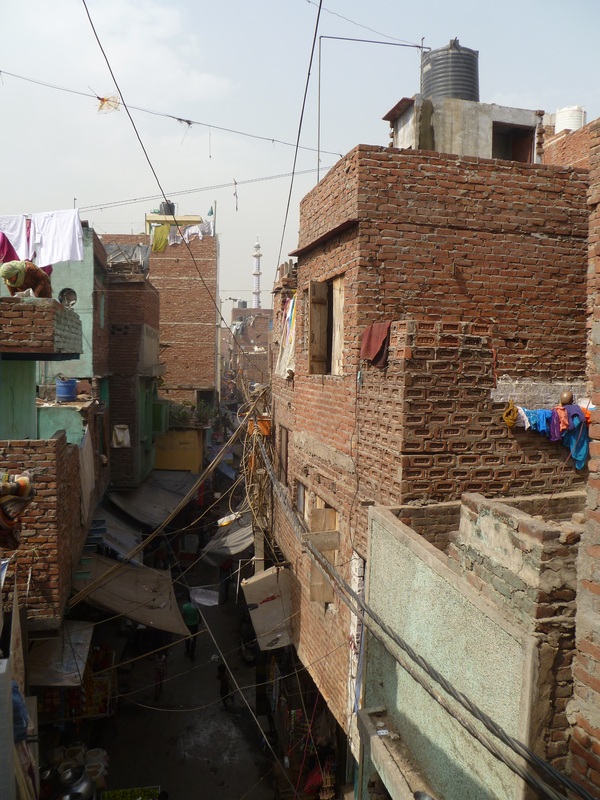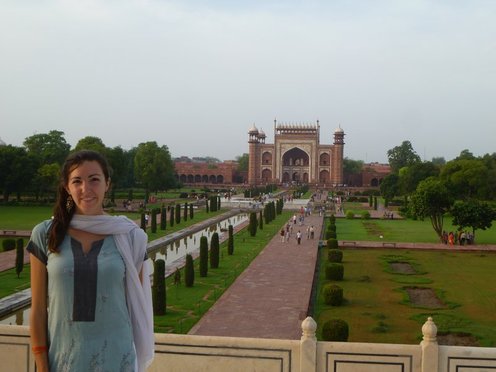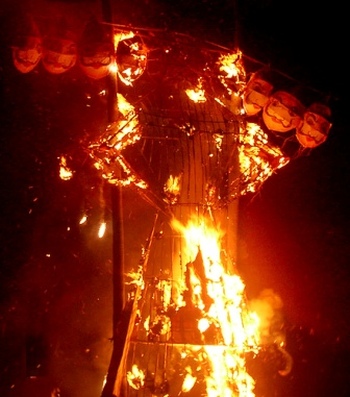A few hours into the journey, an elderly woman walked through the train car, begging for change. She looked frail and tired, and she had scabs on her arms. Lots of people get on and off of Indian trains along the way, begging or selling things, but when I noticed her standing in the aisle after she had made her rounds, I realized that she had nowhere to sit until the next stop, and who knew when that might be. I willingly offered her my seat. She hesitantly accepted, but seemed grateful to sit down. Over the next few minutes I learned a little about her life and tears welled up in her eyes as she talked about the plight of the four children she is trying to support by begging on the trains.
After she left, I turned to my companions with new eyes—those interlopers who were sitting where I was supposed to be laying down, making up for all the sleep I hadn’t gotten the night before. Actually, their clothes were not much better than this old granny’s. Some of them were pretty old. They probably got “waitlisted” because they couldn’t scrape together enough money to purchase their tickets far in advance like us wealthier people can. So why had I felt such compassion towards the elderly beggar, but only anger and indignation toward my fellow passengers?
I think it came down to my sense of justice.
Justice. Jesus told a story about justice. It was a story about day laborers (Matthew 20:1-16). A land owner goes out to the market early in the morning to hire some of them to work in his vineyard, and agrees upon a certain wage for the day. Throughout the day he goes back to that same spot and hires more and more of the men who are still standing around waiting for a job. By the end of the day, some of the men have been working outside through the heat of the day, while others have only been working for the last hour or two. The land owner pays the latecomers first, and when the morning crew sees that he’s paying them the typical wages for a full day’s labor they start to get excited, because they assume that must mean that he is planning to pay them even more than what he originally agreed to! When their turn comes and they receive the same amount as the last men who were hired, they feel that they have been wronged. “That’s not fair!” they tell the boss. “These guys got the same amount of money for an hour of work as we got for a full day of sweating out in the sun!” The land owner’s response challenges their sense of injustice. “Have I not compensated you fairly for a full day’s work? Why does it matter to you if I want to give these other workers a full day’s wages, too?”
The situation for day laborers in India and under highway overpasses across America today is similar: if a day laborer was still waiting for a job in the market at the end of the day, it meant that he wouldn’t able to feed himself and his family that night. The land owner in Jesus’ parable wasn’t paying people what their labor deserved—he was paying them based on what they needed to survive that day. This gives us a huge insight into God’s idea of justice.
In His view, Justice is not people getting what they deserve.
Justice is people being provided with what they need.
Our companions on the train needed a seat just as much as we did. God doesn’t care whether their tickets were waitlisted or not. He didn’t care that the woman who was begging hadn’t bought a ticket at all. And neither should we.
Source: New feed


